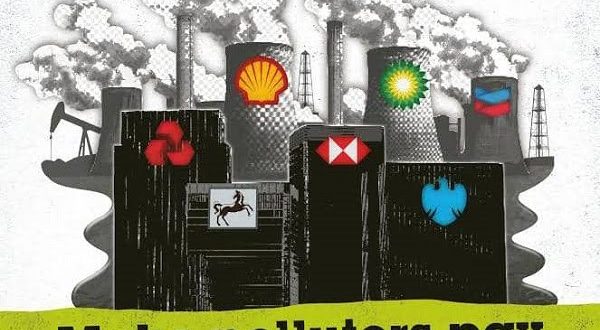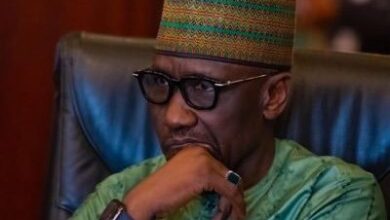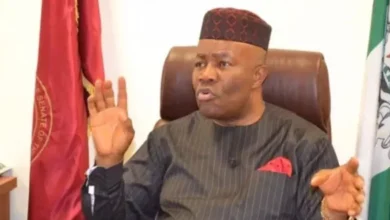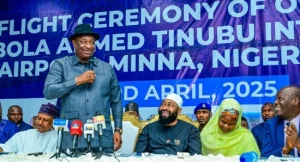Climate activists renew call for reparation for Africa

The Africa Make Big Polluters Pay Coalition has wrapped up a two-day training for journalists across the continent on climate change reporting, with a call for sustained coverage of the climate crisis from an Afrocentric perspective.
The coalition also renewed its call for just climate reparations for Africa and the Global South, which bear the most brunt of the climate crisis.
The virtual event, which was held on April 22-23, featured no fewer than 51 climate journalists from the print, electronic and online genres, and advocates from at least eight African countries, in addition to expert resource persons from Nigeria, Togo, The Gambia, the United States and India.
Themed “Communicating Climate Change: Realities, Impacts, and the Need for Action,” the training was organised by the MBPP Coalition and hosted by Corporate Accountability & Public Participation Africa (CAPPA) in partnership with Corporate Accountability (CA) with a focus on equipping journalists with the knowledge and skills necessary for promoting environmental justice and accountability.
The event also sought to demystify climate science and politics, providing participants with tools to effectively advocate for change. By uniting diverse stakeholders, the training aimed to cultivate a shared language around justice and environmental responsibility.
Day one featured presentations and remarks by leading environment and climate change experts, including the Executive Director Health of Mother Earth Foundation, (HOMEF), Corporate Accountability’s Managing Director Elvis Méndez, Executive Director of the Centre for Environmental Justice, Togo Kwami Kpondzo, CAPPA’s Executive Director Akinbode Oluwafemi and CAPPA’s Senior Climate Change Programme Manager Olamide Martins.
Mendez, who heads CA’s campaigns, said, “We are living in precarious times.” Mendez underscored the urgency for collective action against climate change, highlighting the significant power that corporations hold over governments.
“Corporations must be held accountable for their actions,” he asserted, emphasising that the gathering aimed to foster a unified approach to climate action.
The training also addressed the disparities in contributions to global climate change, particularly between the Global North and African nations.
Mendez pointed out that while African countries contribute relatively little to global emissions, they are among the hardest hit by climate-related consequences.
“Most pollution is generated in the Global North, yet it’s the Global South that suffers the most,” he stated.
Dr. Bassey, whose presentation was titled “Loss and Damage Fund, Climate Finance: Where is Africa,” harped on the importance of climate finance for both reducing emissions and helping African communities adapt to the changing climate.
He explained that climate change impacts are tackled in two ways: mitigation and adaptation.
Elaborating on the historical context, Bassey said: “For centuries, Africa has been stripped of resources without reaping the benefits.”
He highlighted the long-standing adverse effects faced by African nations, from colonial exploitation to present-day challenges, noting the severe threats posed by sea-level rise and coastal erosion to African coastal communities, which risk displacement and loss of vital infrastructure.
As discussions on climate adaptation and financial models continue, Dr. Bassey reiterated the urgent need for international cooperation and support for African nations in their fight against climate change.
“We must ensure that those most affected are given the support and resources needed to adapt and thrive,” he said, calling for a collaborative effort to secure a sustainable future for the continent and beyond.
Oluwafemi, the Executive Director of CAPPA, explained that journalists play a crucial role in curating the climate change message.
“We need journalists to be able to educate the people to mount pressure on policymakers and government to be able to take appropriate action, as well as mobilise communities, to build communities of resistance to the destruction of climate change and our world,” Oluwafemi added.
Kwami Mkponzo, who spoke on “The Impact of Carbon Markets and the Fossil Fuels Industry on Climate Change,” emphasized the need for a critical analysis of carbon markets.
He expressed concerns regarding the effectiveness of these systems, which allow companies and countries to trade carbon emission credits.
“While this system aims to incentivize emissions reduction, it may disproportionately affect developing nations, particularly in Africa,” Mponzo cautioned.
Martins laid out the objectives of the MBPP Campaign. “Our aim is to amplify the voices of Africans and advocate for more significant climate action,” he explained.
Martins stressed the intensified impacts of climate change on the African continent, calling for collaboration among nations to combat these challenges.
Day 2 featured media-focused sessions by Kristin Salvage, Director of Media and Press at CA, and Esttappen S, Communications Coordinator at Demand For Climate Justice (DCJ).
In her presentation on “Introduction to Climate Change Reporting: What Makes a Good Story?” Salvage said, “You might be telling stories to people, kids, maybe not just children in numbers, but you would be hired to face the atmosphere of the voice response”.
She advised journalists to use first-person storytelling by speaking directly with people, adding that having a good relationship with other people makes things easier, as one can have access to resources.
In addition, Salvage urged journalists to have a clear message and clear action that can attract people. She emphasised that the most important relationship is the actual storytellers, by making sure that the people are stronger in sharing their stories within their communities.
Esthappen, who spoke on “Shaping Narratives, Breaking Climate Updates, and Capturing International Audiences,” underscored the rampant issue of disinformation that distorts realities and undermines public trust in institutions.
“Accurate journalism is vital to shift public perception and promote informed decision-making,” Esthappen asserted, reminding attendees of the importance of scrutinizing information sources, especially in the age of social media, where misleading narratives often proliferate.
“As we stand at a turning point, we can build a future where facts are celebrated and misinformation is challenged,” Esthappen added, highlighting the collective responsibility to ensure the flow of truthful information for the public good.
In his closing remarks, Dawda Cham, Deputy Executive Director of Household Disaster Resilience Project (HELP-Gambia) urged journalists to expose the realities of the climate change issues and also to put to practice at their various organisations what they have learnt.





